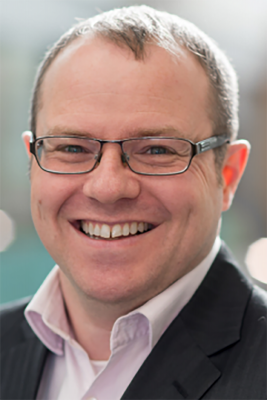Scientific research can be applied to work toward sustainability and justice, Benjamin Sovacool, who was appointed as director of the Boston University Institute for Sustainable Energy last month, said.

Sovacool, who is also a professor in the Earth and Environment department, said he wants to connect sustainability with justice, health and the environmental sciences.
“[It] doesn’t have to be theory, it doesn’t have to be conceptualizations,” Sovacool said. “We can actually do empirical research that matters to people that can help solve some of their problems and empower communities.”
One of his goals, he said, is to show students how using social science can complement their scientific research, as a social scientist himself.
“A lot of the hard sciences use measurements, or experiments, or remote sensing, like satellites, those are great,” Sovacool said. “But you can also use other methods, like interviews, and diaries, and focus groups, and direct observation and field research.”
Regarding industry, he said it was important that the ISE works with different schools and departments across BU that are strong in their disciplines to find solutions on creating sustainable industries.
One of the ISE’s projects, Carbon Free Boston, is a collection of reports created to help the city of Boston with its ongoing Climate Action Plan. The project is a collaboration with the Boston Green Ribbon Commission, a group of leaders in Boston developing climate change strategies.
Sovacool said the project is “almost like a living document.”
“We’re still working through how to make Boston greener and cleaner with green spaces, or cycle lanes or waste management… or climate disaster planning,” Sovacool said. “So I think it’s still alive.”
Sarah Finnie Robinson, adjunct faculty in the College of Communication and senior fellow with the ISE, said the institute is a “think-and-do tank, not just sort of floating around and writing on a whiteboard, but actually doing things that make a difference in the world.”
Robinson said Sovacool has a clear “roadmap” of his priorities and she was excited about the future of the ISE and COM’s involvement.
“From what I can tell, we have a leader now who … is inclusive and is very creative in his thinking,” Robinson said. “He’s got a wonderful background in behavioral science.”
Sovacool will focus on energy systems, climate governance and environmental and planetary health, Susan Fournier, dean of the Questrom School of Business, wrote in an email.
“It benefits the University to build multifaceted expertise in this space,” Fournier said.
Alicia Zhang, who is a second year Ph.D. student in the Graduate School of Arts and Sciences’ Earth and Environment department, said she is working on the Impact Measurement & Allocation Program, an ISE and Questrom initiative centered on finding better ways to evaluate a company’s environmental, social and governance metrics.
Zhang said she read Sovacool’s work while writing a research paper related to energy justice.
“It’s kinda cool that the person that we’re reading a lot is someone that is actually going to be working here at the University,” Zhang said.
The ISE is launching a student fellowship program starting this summer that includes a stipend for students to be mentored and present research for six weeks, Sovacool said.
Recently, the ISE also launched a focused research program in partnership with the Rafik B. Hariri Institute for Computing and Computational Science and Engineering. The program is designed to fund a research team involving students delving into sustainability data, misinformation and conspiracy theories.
“How prevalent are conspiracy theories, where do they come from, what impacts they have, who’s behind them, and then how do we stop them?” Sovacool said. “All of that is within the remit of the research program.”
There are many spaces for students to be “inspired” on BU’s campus for research and change, he said.
“Students can become agents of change themselves,” Sovacool said. “They can be empowered and challenged to take these huge issues and design research that can help address them.”



























































































































